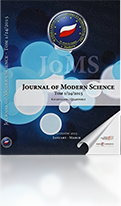Glosa aprobująca do wyroku Wojewódzkiego Sądu Administracyjnego w Olsztynie z dnia 14 maja 2013 r., sygn. akt II SA/Ol 196/13
Approving commentary to the verdict of the Provincial Administrative Court in Olsztyn dated 14 March 2013, file no. II SA/Ol 196/13
Author(s): Sebastian BentkowskiSubject(s): Law, Constitution, Jurisprudence, Essay|Book Review |Scientific Life
Published by: Wydawnictwo Akademii Nauk Stosowanych WSGE im. A. De Gasperi w Józefowie
Keywords: resolution-making initiative; Provincial Administrative Court; commentary; resolution; councilor;
Summary/Abstract: It must be stated that the voted verdict of the Provincial Administrative Court in Olsztyn is correct; according to the verdict, granting resolution-making initiative to a group of persons who enjoy active electoral rights does not violate the law because the civic resolution-making initiative is within the “limits of law” arising from Art. 169 (4) of the Constitution of the Republic of Poland as a general right to shape the content of a statute. The very granting of resolution-making initiative to a group of residents does not limit in any way the rights of councilors or the council because submission of a draft resolution does not result in the requirement to adopt it but only the requirement to examine it – as in the case of any other initiative. Consequently, there is no deprivation or limitation of the competence of the decision-making body – the commune council. Moreover, I believe that questioning the provisions of a statute only on the basis of the claim that they do not have a faithful and detailed origin in an act is an error in the legal art because it is wrong to claim that a commune does not have a detailed basis separately for each provision of its statute while overlooking the general basis of all provisions of statutes contained in the relevant regulations: Art. 164 (4) of the Constitution of the Republic of Poland and Art. 3 (1), Art. 18 (2) (1), Art. 21 (1), and Art. 22 (1) of the Act on commune-level local government. A commune statute can regulate all matters related to the system of government in the commune that are not expressly regulated in the act, as long as it is not contradictory to the provisions of the act .What is more, I believe that not only a group of residents have the right to resolution-making initiative granted in the statute, but also that such a right can be granted to, e.g. a general meeting of an association or a resolution-making body of a political party that has a local unit in the territory of a specific unit of local government.
Journal: Journal of Modern Science
- Issue Year: 29/2016
- Issue No: 2
- Page Range: 389-404
- Page Count: 16
- Language: Polish

